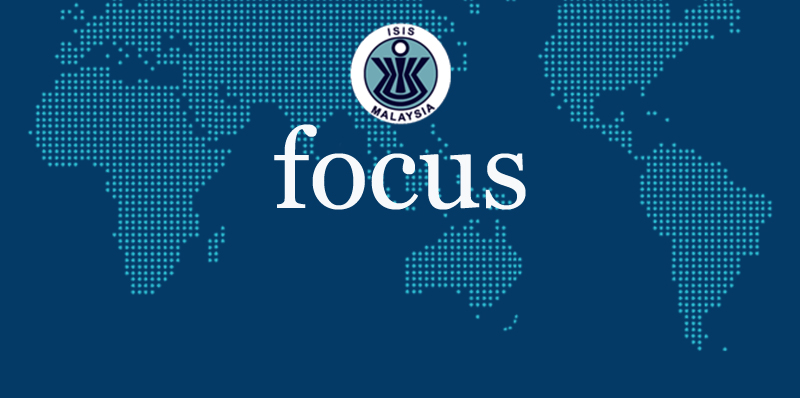COVID-19 has compelled Vietnam to recalibrate some of its agendas and priorities as ASEAN Chair this year. What are the pressures faced by Vietnam and how has it responded to this challenge?
BY NGUYEN VU TUNG
The COVID-19 pandemic is testing Vietnam’s ability to lead ASEAN in 2020 as its Chair. In mid-November 2019, Hanoi was ready to host about 300 meetings in 2020, including the ASEAN Summits scheduled in April and November. It introduced the theme “Cohesive and Responsive” and identified five key priorities to pursue in line with the ASEAN Community Vision 2025, in addition to those set by previous chairs.
Three important meetings by ASEAN’s Foreign, Defence and Economic Ministers held in January, February and March respectively, promised a good start for Vietnam’s Chairmanship. It should be noted that these meetings agreed with the theme, five key priorities as well as the timetable for activities in 2020.
The pandemic, however, seriously impacts the context of Vietnam’s Chairmanship. The ambitious agenda, which has been significantly influenced by geopolitical and geo-economic imperatives, now faces a situation in which non-traditional security has come to the fore. In this regard, pandemics and other non-traditional security threats have complicated the traditional security landscape, as well as the policy choices of ASEAN and its member states.
At the same time, the pandemic seems to have reinforced unfavourable conditions for multilateralism generally and ASEAN specifically. The pandemic exposed the unpreparedness and ineffectiveness of multilateral institutions and mechanisms, and prioritised national, unilateral responses when collective, multilateral actions were needed to manage the crisis. Of equal importance, it intensified, rather than reduced, the Sino-US strategic competition and the resulting competing modes of alignment. It also created added opportunities for China to exert its presence and influence in the region through more assertive moves, including those in the South China Sea.
Furthermore, the pandemic severely impacts ASEAN’s ability to conduct business as usual. International and regional travel restrictions, impositions on social distancing, and the imperatives of fighting the pandemic have made many physical meetings impossible. The ASEAN-US Las Vegas Summit and the first ASEAN Summit respectively scheduled in March and April, were cancelled.
In other words, the pandemic has put more pressure on Vietnam in its capacity as ASEAN Chair to shore up the organisation’s cohesiveness and responsiveness. Nevertheless, Vietnam has shown a high level of responsiveness to lead ASEAN through this difficult time by promoting digital diplomacy. At Vietnam’s initiative, online meetings are now welcomed and have become the new normal of conducting ASEAN business. Most ASEAN officials were quick to adapt to more sophisticated digital means of communication.
At the same time, Hanoi has worked hard behind the scenes to bring all parties together from various time zones, building consensus on matters related to not only meeting schedules, but also agendas and statements. Throughout March and April, all the events – including the ASEAN Coordination Council (ACC) meeting, ASEAN-EU Foreign Ministers Meeting, ASEAN-US Senior Official and Foreign Ministers Meetings, Special ASEAN Summit and Special ASEAN Plus Three Summit – were convened online. Vietnam’s Prime Minister and Foreign Minister also made phone calls to their ASEAN counterparts. These virtual events led to the scheduling of more online meetings among ASEAN Member States and Dialogue Partners.
The significance of online meetings is multifold. It shows ASEAN’s ability to adjust its schedule and quickly respond to the new situation. Fighting the pandemic was prioritised. As early as 14 February, Vietnam issued a Chairman’s Statement on ASEAN Collective Response to the Outbreak of Coronavirus Disease 2019. All the above-mentioned online meetings have been COVID-19 related, designed to foster regional cooperation not only in the public health sector, but also along ASEAN’s community-building action plans in new contexts influenced by the pandemic.
Of equal importance, these meetings help to boost ASEAN cohesiveness in addressing important regional matters, especially in coping with the pandemic and forging a common stance on new developments in areas such as the South China Sea. The conduct and content of these meetings have also helped ASEAN maintain not only its visibility and proactiveness, but also its central role in the network of regional institutions. In other words, under Vietnam’s Chairmanship, ASEAN is scoring rather well in responsiveness and cohesiveness.
Still, in the remaining months of 2020, it will be more difficult to move beyond conducting virtual diplomacy. The agreements reached at meetings, virtual or physical (when the pandemic is hopefully over in a couple of months), must be translated into actual implementation, which can be more challenging in the context of the pandemic and its aftermath. National prioritisation on economic recovery, intensification of Sino-US competition, lesser resources and appetite for multilateralism, and restricted international travel represent major hurdles for ASEAN’s community-building process, which may enter a protracted post-COVID-19 phase under Vietnam’s Chairmanship.
Nguyen Vu Tung is President of the Diplomatic Academy of Vietnam (DAV) and Vietnam’s ambassador-designate to South Korea





